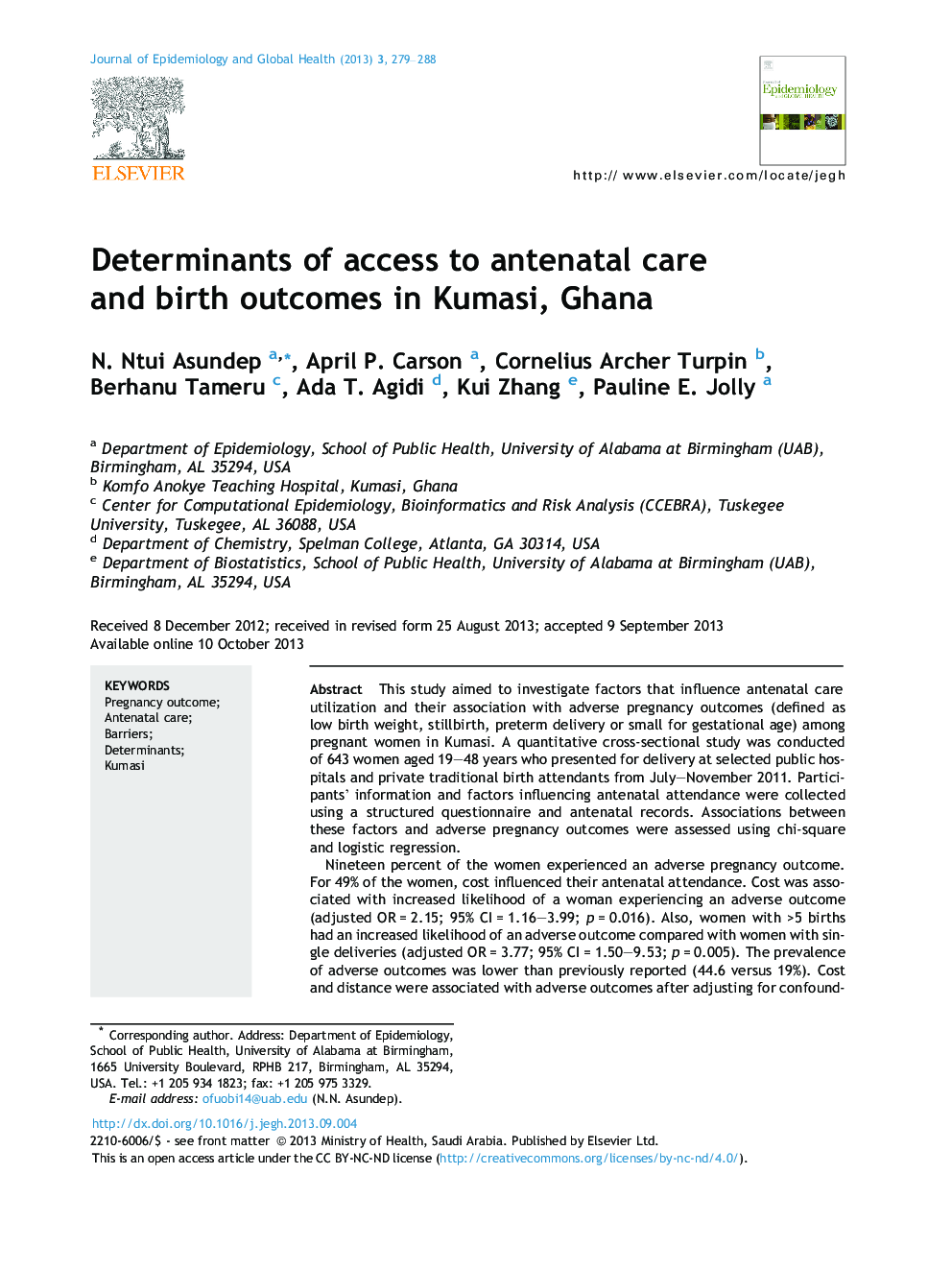| Article ID | Journal | Published Year | Pages | File Type |
|---|---|---|---|---|
| 3327657 | Journal of Epidemiology and Global Health | 2013 | 10 Pages |
This study aimed to investigate factors that influence antenatal care utilization and their association with adverse pregnancy outcomes (defined as low birth weight, stillbirth, preterm delivery or small for gestational age) among pregnant women in Kumasi. A quantitative cross-sectional study was conducted of 643 women aged 19–48 years who presented for delivery at selected public hospitals and private traditional birth attendants from July–November 2011. Participants’ information and factors influencing antenatal attendance were collected using a structured questionnaire and antenatal records. Associations between these factors and adverse pregnancy outcomes were assessed using chi-square and logistic regression.Nineteen percent of the women experienced an adverse pregnancy outcome. For 49% of the women, cost influenced their antenatal attendance. Cost was associated with increased likelihood of a woman experiencing an adverse outcome (adjusted OR = 2.15; 95% CI = 1.16–3.99; p = 0.016). Also, women with >5 births had an increased likelihood of an adverse outcome compared with women with single deliveries (adjusted OR = 3.77; 95% CI = 1.50–9.53; p = 0.005). The prevalence of adverse outcomes was lower than previously reported (44.6 versus 19%). Cost and distance were associated with adverse outcomes after adjusting for confounders. Cost and distance could be minimized through a wider application of the Ghana National Health Insurance Scheme.
